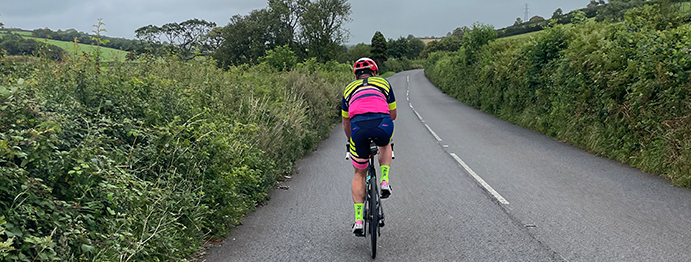
Let’s take a look at the benefits…
28% of the UK adult population – over 14 million people – currently cycle less than once per month and would like to cycle more regularly.
Increasing cycling to 25% of all journeys in the UK by 2050 could provide over £42 billion in economic benefit.
The cost of buying and maintaining a bike is around 1% of the cost of a car. Factor in the money saved in annual MOTs, repairs, fuel and parking, and you’ll be laughing all the way to the bank!
Increasing cycling by 3 km per day and walking by 1 km amongst individuals in urban centres in England and Wales could result in £17 billion in savings to the NHS over next 20 years
Cycling can burn between 400 and 1000 calories an hour, depending on intensity and rider weight.
Since a half hour ride to work should be burning between 200 and 500 calories, you've got a license to enjoy a smug second breakfast at your desk.
Researchers studied over 260,000 individuals over the course of five years - and found that cycling to work can cut a riders risk of developing heart disease or cancer in half. The full study can be read here.
Individuals who cycle for 30 minutes, five days a week take about half as many sick days as people who drive to work.
King’s College London compared over 2,400 identical twins and found those who did the equivalent of just three 45-minute rides a week were nine years ‘biologically younger’ even after discounting other influences, such as body mass index (BMI) and smoking.
In 2017 Cycling UK calculated that cycling to work every day could save you over £3,000 every year compared with driving to work.
Cycling also beat public transport hands down on price.
Back then petrol was 117p a litre. It’s now 199p. So today you’ll spend 50% more on fuel.
You can slash your annual transport costs if you make as many everyday journeys as possible by bike – not just cycling to work but running errands, meeting friends, and more.
If the journey is rideable, ride it. Aside from walking, which has a much more limited range, cycling is the cheapest way to travel.
If you’re riding your bike more you won’t need to spend £50 a month on gym membership to keep fit. Bin it and save £600 a year.
Your local bike shop will be a fountain on knowledge when it comes to ensuring that you get the right bike to start off with. If you prefer to do a bit of homework before you start shopping, ensure to read our road bike size guide to help find a frame that fits.
It sounds obvious but don’t try to start cycling in on a week where you have a big deadline or that all-important meeting in the morning as that’s a recipe for disaster.
Road Position - https://youtu.be/BapFZkvQHmY
Do a practice run with all of the kit you need for your day at work.
Give yourself extra time for a shower – fantastic facilities here at Devonport including a drying room.
Be patient with drivers and cyclists alike.
Follow the highway code